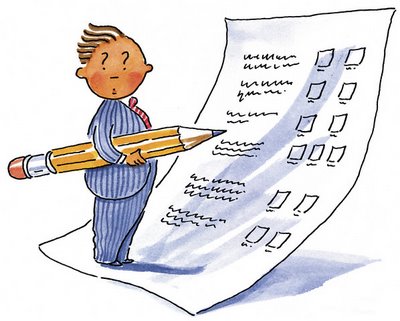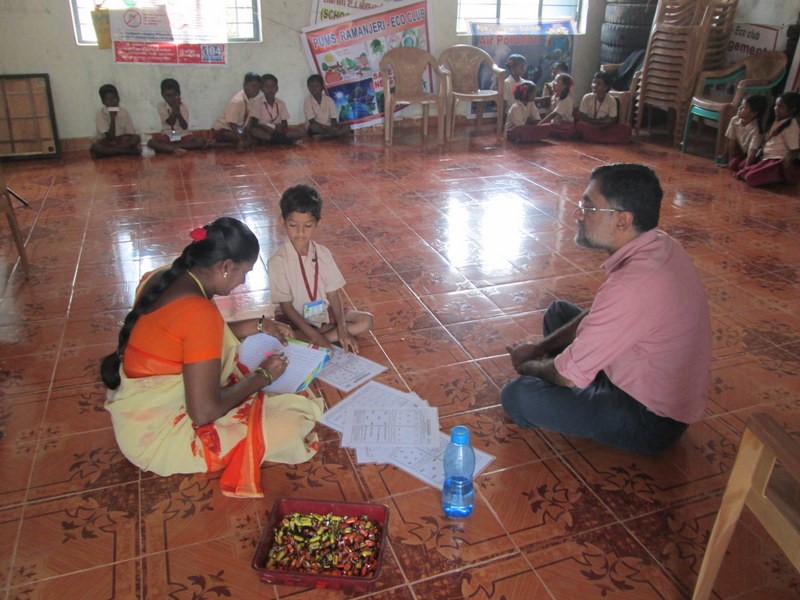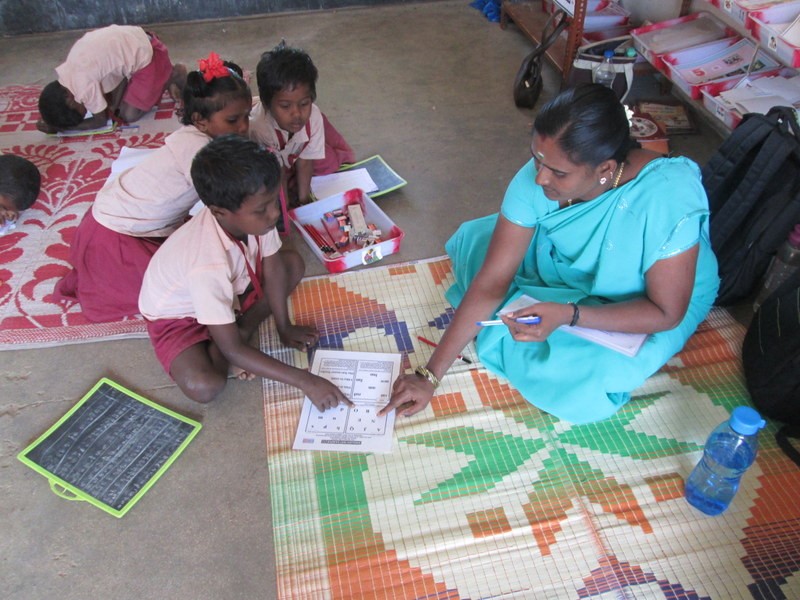About
Asha Assessments

At Asha Chennai we are now supporting more than 185 government schools spread across Tamilnadu.
With this kind of scale we felt the need to develop metrics to tell us how our projects are doing and start measuring the impact we are having and fine-tune our actions so as to improve the outcome. However, assessments at the government schools in Tamilnadu are completely broken and the data coming from that is totally unreliable. Therefore we started conducting our own assessments starting from 2014-15.
There are three reasons to conduct assessments.
#1
The teachers should know the level of each child, first to understand areas where the conceptual understanding is lacking for the whole class and where there are specific students who need additional help. In higher classes the children should also know where they stand in relation to the knowledge expectation at their grade level, so they can focus on their own weak areas and improve themselves.
#2
Assessments provide an opportunity for the organisation (in this case Asha Chennai) to communicate to the teachers what is the expectation in terms of learning outcome.
#3
The school management and higher officials need to understand the levels of the children so that decisions can be made with the correct information. They can also take suitable actions (add more teachers, provide free breakfast to improve attendance etc.) if there are large gaps between expected and actual learning outcomes.
How do we conduct it?
As Asha, we conduct oral assessments aligned to Pratham’s ASER in Oct/Nov of every year. This provides a basic tool to measure the learning attainment level of every school / child. It provides a score that can be compared across schools/regions and also importantly across time to measure the progress of a school over the years. We also conduct a written assessment in March to give us a more detailed picture of the gaps in learning.
Here are the written assessment papers for the years 2017-18, 2018-19 and 2019-20.
While we make our assessments stress-free for the child, they are conducted “strictly”. Papers are kept secret till the date of the test. Teachers from other schools come and conduct the test. We train the teachers so that they are conducted in the same manner at all schools. Thanks to these efforts we can see that our data is “well-behaved”.

Asha Chennai has been collecting data about the schools and children over these years. We have been analysing the assessment performance data along with a lot of data about the schools from the UDISE database as well as sociological data about the children we ourselves have been collecting. In the future we also intend to correlate this data with the usage data coming from Asha Kanini. Here are some of the sociological data we have been gathering the last few years,
- Education status of the parents.
- Student’s pre-school education.
- Attendance level of the student.
- Date of birth, Height and Weight.
- Grades from the BRT or the school for the student in various subjects / skills.
- Subjective information from the school teachers about whether the student does homework regularly (if the school gives it), has breakfast before coming to school etc.
Data Analytics
At the basic level we provide a report to each school to show them the performance of children in their school. It also provides some analysis on gaps in learning levels of the children.
Each year we undertake a more detailed analysis to get us a clearer idea of how our schools and broadly our program is doing. Here are a couple of sample reports.
- Based on the data over the years we did a study of the sociological factors affecting education. We have learnt several things like how parents education has an outsized impact on the performance of the children, teacher-student ratio does not impact as much, children coming from further away (typically poorer hamlets) do worse than children living in the same hamlet as the school, childrens and schools performance in different subjects is well correlated etc. However we have not published a detailed report yet. We hope to do so soon.
- These assessments have provided a good way to evaluate our own programs. Here are some findings like how our KaradiPath program is improving English performance, our mini-schools helped arrest the slide in education, children from UP-Rajatalab are doing better than children in TN in their mother tongue etc.
- Asha has been involved in a study with IIT Bombay Education and Technology dept. Three interns worked on this project and a paper was submitted to the IEEE T4E conference 2019. Here is the paper.


Contact us if you are interested in working with us on data analysis of assessment data and further improve the same.
